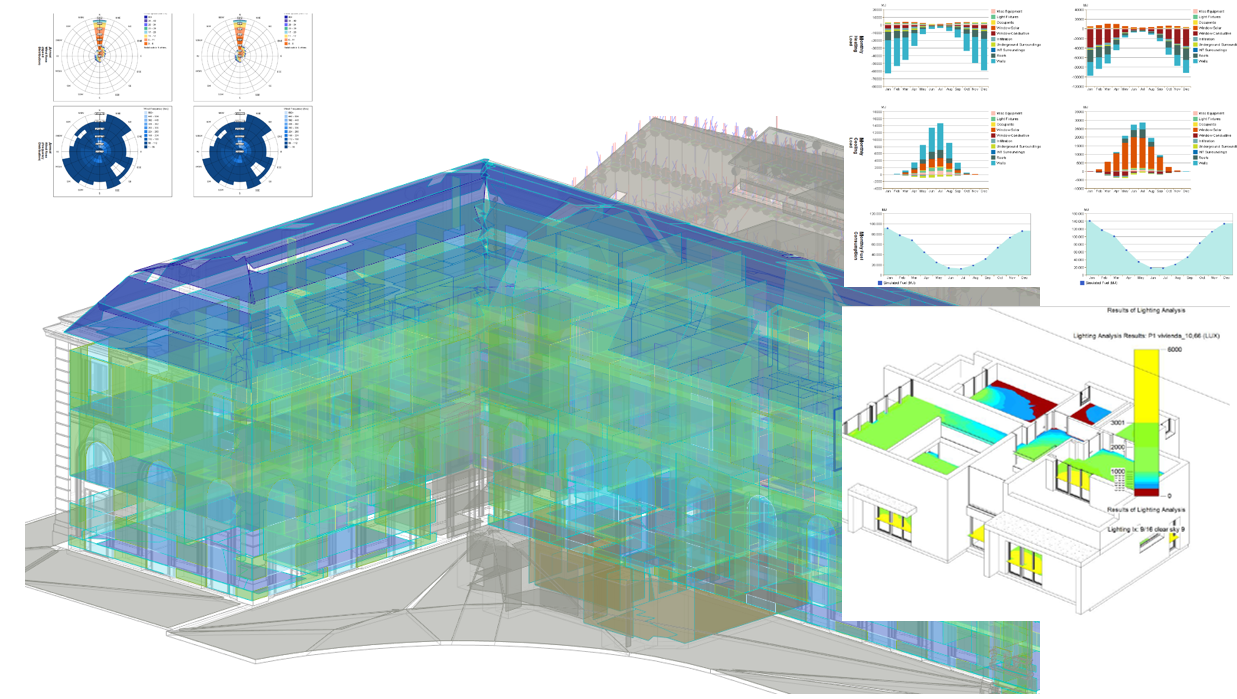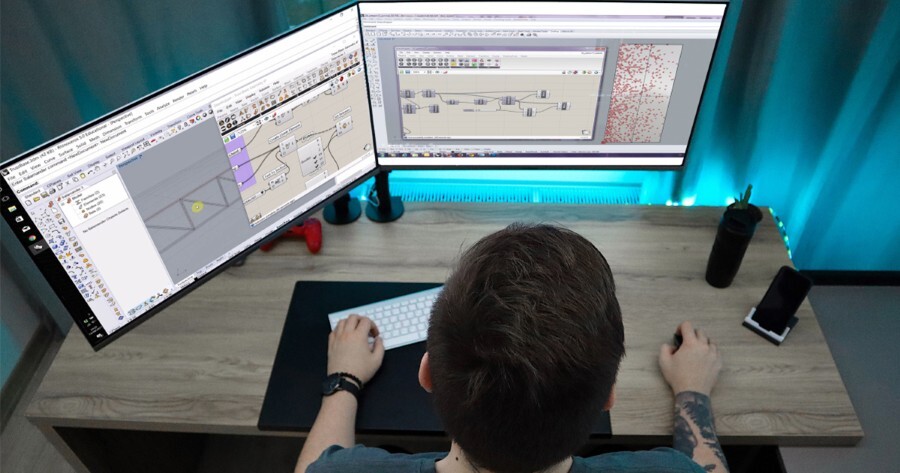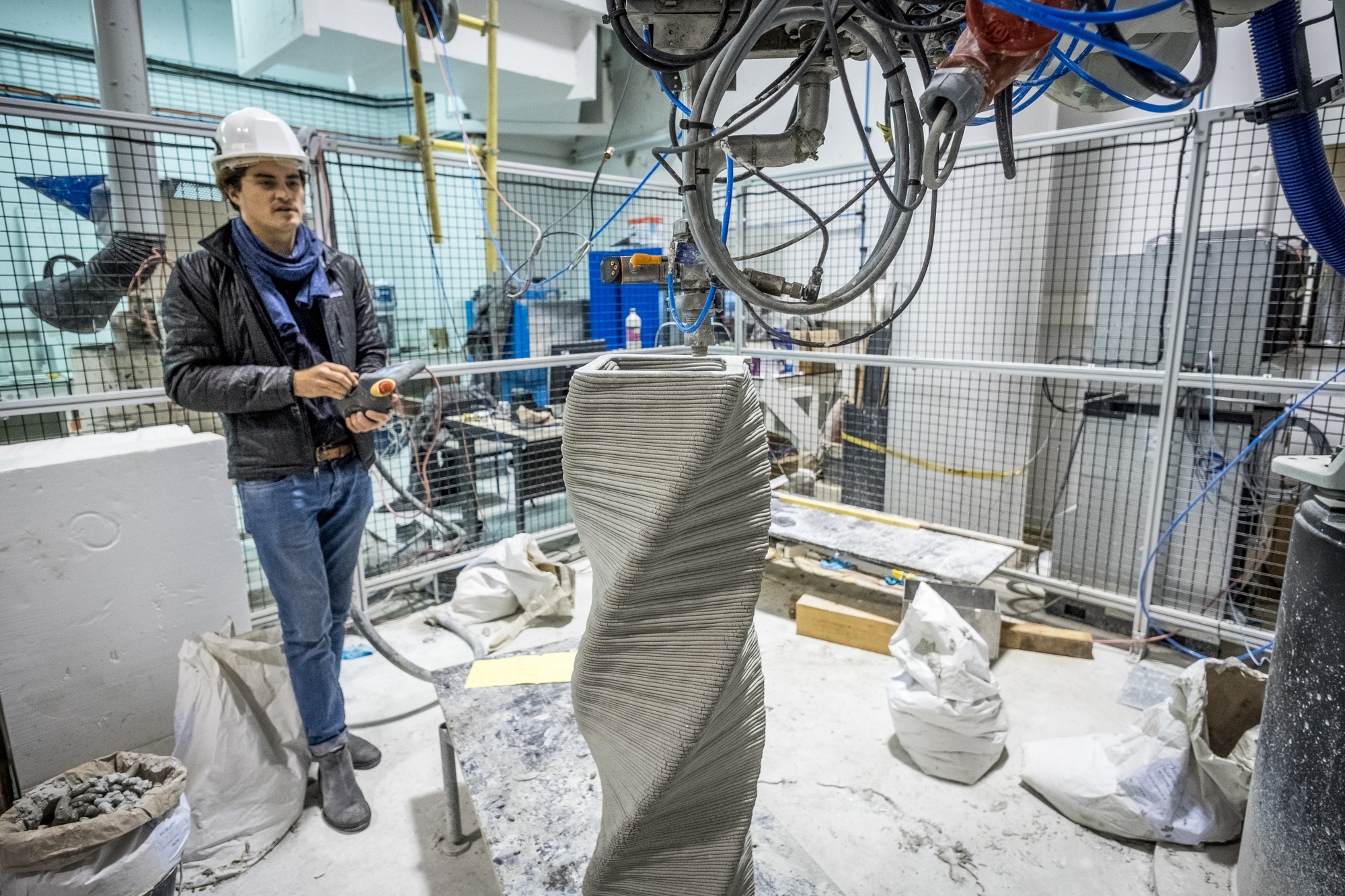
Designed for architects, engineers, and sustainability specialists, computational design courses for building performance professionals teach how to use parametric modeling, simulation, and scripting to reduce energy use and improve occupant comfort. According to the National Renewable Energy Laboratory, buildings consume a large share of U.S. energy, roughly 40% of total U.S. energy and 75% of electricity, which is why targeted training in performance-driven design has a real, measurable impact.
List of 5 Computational Design Courses for Building Performance Professionals
Below is a table summarizing each course, followed by detailed descriptions so you can choose the best fit for your practice.
|
Course |
Institution |
Format & Length |
Primary focus |
|
Master Computational Design |
Novatr |
Online session, 6 months |
Computational BIM, simulation, portfolio + career support. |
|
Master in Advanced Computation for Architecture & Design |
IAAC |
1 year (60 ECTS) |
Advanced computation, environmental & structural analysis of building. |
|
AI-Driven Computational Design |
MIT xPRO |
6 weeks, online |
Generative/AI methods for performance prediction. |
|
Intro to Rhino & Grasshopper (Certificate) |
FIT (Fashion Institute of Technology) |
Short practical certificate |
Rhino + Grasshopper fundamentals for design and fabrication. |
|
Grasshopper Certification Course |
ThinkParametric |
Self-paced / Flexible timing options |
Parametric workflows, plugin ecosystem, applied examples. |
1. Master Computational Design by Novatr
Duration: 6 months
Price: INR 2,45,000 for the full program.
The Master in computational design by Novatr pairs practical online parametric design training with performance analysis and career services. The course is cohort-based, project-driven, and designed for working professionals who need applied skills quickly.
Key USPs:
- Learn 5 powerful industry tools — Grasshopper, Rhino 3D, Flux.ai, ComfyUI, and D5 Render.
- Master popular plugins like Paneling Tools, DeCoding Spaces, Anemone, Galapagos, Wallacei, LunchBox, Open nest and Horster Animation to create smarter, faster design workflows.
- Understand how to build parametric and generative design workflows used by top global firms.
- Learn how to automate repetitive design tasks, explore AI-driven creativity, and produce high-quality renders for presentations.
- Develop a professional computational design portfolio showcasing your project-based learning.
- Earn dual certification from Novatr and NSDC (National Skill Development Corporation) upon completion, and step confidently into the world of future-ready architecture and design.
The Master computational design by Novatr is best if you want a compact, professionally oriented pathway that links parametric modelling to measurable building performance.
Disclaimer - Course details, including curriculum, duration, fees, and related information, are for informational purposes only and may change at the company’s discretion without prior notice. Please visit the official course page or contact our admissions team for the latest updates.
2. Master in Advanced Computation for Architecture & Design – IAAC
IAAC’s MACAD is an academic master's program that emphasizes research and technical depth across computation, fabrication, and environmental analysis. The programme introduces advanced scripting, multi-objective optimization, and integrated BIM workflows that support performance-led decisions.
Students work in semester-long design studios that test environmental strategies, structural logic, and generative systems for façades and envelopes. This approach reflects real-world performance needs, from daylight analysis to embodied carbon evaluations. It also ensures graduates can handle complex tasks similar to those expected in a BIM simulation course, where coordination between design teams and simulation specialists is critical. The course’s studio structure helps translate theoretical methods into testable, performance-oriented outcomes.
Also Read - Top 7 High-Paying Jobs in Building Performance & Energy Modeling
3. AI-Driven Computational Design – MIT xPRO

MIT xPRO’s short professional course focuses on AI and machine learning methods for design and performance prediction. It teaches how to build surrogate models, run virtual tests, and integrate algorithmic design workflows that speed up exploration and reduce costly physical testing.
For building performance professionals, this course is especially valuable when paired with computational design courses like Novatr’s or IAAC’s, since it adds skills in predictive modeling that can extend existing parametric knowledge. It also demonstrates how AI can support questions such as What is a net-zero building? by quickly estimating performance impacts across many design iterations.
4. Intro to Rhino & Grasshopper – FIT Certificate
For focused tool training, FIT’s Rhino & Grasshopper certificate provides a practical introduction to geometry, surface modelling, and the basics of visual scripting. The class trains designers to build robust definitions and to connect geometry to downstream fabrication or analysis workflows.
Suppose your goal is a Rhino Grasshopper course that moves quickly from interface to applied definitions for shading, façades, or parametric massing. In that case, this certificate gives the fundamentals in a compact format. By integrating add-ons like Ladybug and Honeybee, learners can also bring performance data into their parametric studies, turning a modelling exercise into a genuine analysis workflow.
5. Grasshopper Certification Course – ThinkParametric

ThinkParametric’s course is built around mastering Grasshopper workflows, component logic, and plugin ecosystems (Ladybug/Honeybee, Karamba, etc.). It is practical and outcome-oriented, often culminating in a project that demonstrates an integrated workflow between geometry and environmental analysis.
This course is ideal when you want a hands-on Rhino Grasshopper course focused on parametric problem solving and performance-driven design logic, particularly for façade optimization and daylight studies. It also ties naturally into broader computational design courses by showing how scripting and plugin integration can push performance outcomes, a critical skill as sustainability metrics become mandatory in many regions.
Conclusion
Choosing the right training depends on your timeline and goals. If you want a concentrated, career-oriented route that aligns parametric skills with measurable outcomes, the Master in Computational Design by Novatr delivers a practical bridge between modelling and performance. For accredited academic depth, IAAC’s MACAD provides rigorous studio and research exposure; for AI and surrogate modelling, MIT xPRO compresses powerful tools into a short professional course; and FIT plus ThinkParametric covers the essential Rhino Grasshopper course and plugin-driven workflows you’ll need for environmental analysis.
Across these options you can build a cohesive learning path that combines online parametric design training, targeted BIM simulation course skills, and advanced computational design courses techniques to answer core design questions, such as What is a net-zero building? through data and simulation rather than guesswork.
Advance your career with the Master Computational Design Course at Novatr and gain the skills to lead performance-driven projects globally. Visit our resource page to get started and receive expert guidance on advancing your career.
Was this content helpful to you



.jpg)




